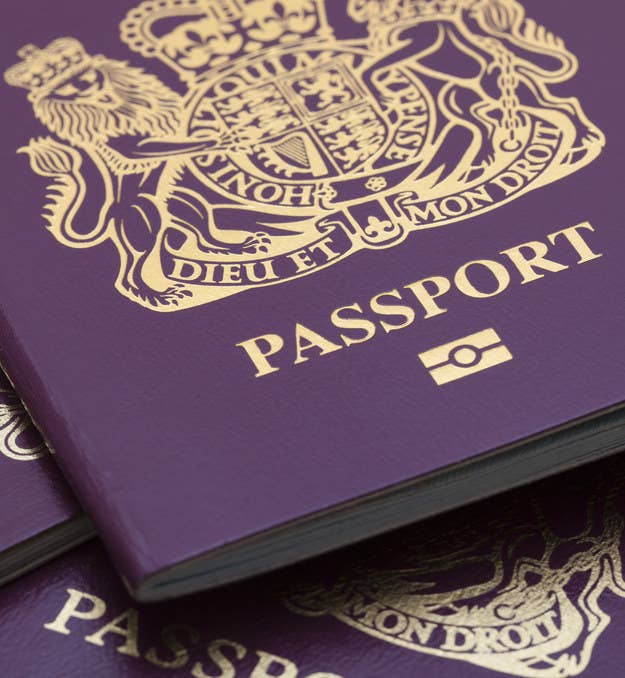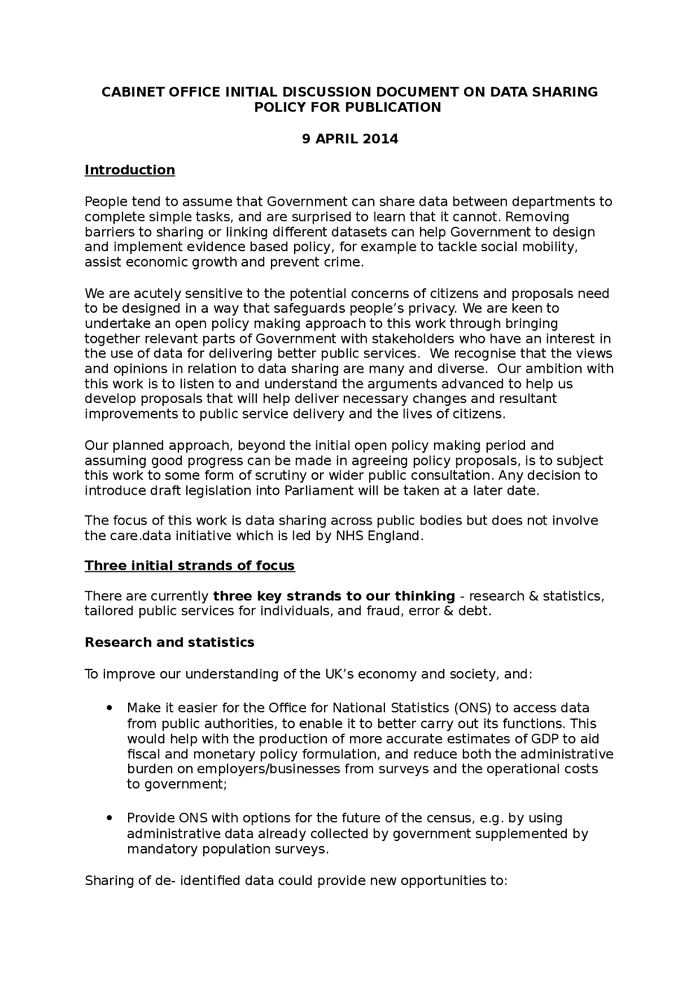
The government is considering passing legislation to allow departments to share information it has about citizens, including everything from criminal offences and qualifications to how much you spend on energy.
Politicians think compiling all this information in one area will allow the government to more effectively formulate policy based on evidence to "tackle social mobility, assist economic growth and prevent crime", according to the document. But it is believed ministers could pass legislation that would allow departments to pass on information about individual citizens without their consent, the Telegraph reports.
The remarks appear in a "initial discussion document" produced in April by the Cabinet Office Data Sharing Policy Team. BuzzFeed has obtained a copy of the document, which you can view here:
The introductory paragraph sets out exactly why these discussions are taking place. It says: "People tend to assume that government can share data between departments to complete simple tasks, and are surprised to learn that it cannot."
In many cases, research on government and public body data is limited to the analysis of single data sets which, if the researchers are external to government, is almost always of anonymised or de-identified data. Consequently the possibility of undertaking deeper research using cross-linked but separate data sets is difficult or impossible. Bodies holding the data can be reluctant to undertake such shares and analysis because they lack the necessary powers to share information or are subject to a statutory bar. Those outside government can find it difficult to access data in the first place and then cross-link two or more de-identified sets of data.To assist in overcoming these issues, the report by the Administrative Data Taskforce Improving Access for Research and Policy ... recommended a model of data sharing that allowed for such cross-linked research on de-identified data to take place, whilst at the same time maximising privacy protection for data subjects by restricting access to and the use of identity data to the absolute minimum required to cross-link the datasets. There are two variants of the model ... but the majority of structural elements are the same for both.
There might also be concerns that personal data would be shared with an "external data processor", which could be a public organisation.
"1. Proposals could provide all UK public bodies with a discretionary power to:
a. Disclose both personal data and other data to an accredited external data processor (who could be either a public or a private body but not one of the data owners who are the source of the information) for the purpose of indexing against another dataset (which has been provided on the same basis from another data owner). Data owners would be able to disclose whatever type of data is necessary in order for the indexer to be able to match records between the datasets. For example, in many cases an address will be a useful type of data to use as an identifier, but if the research focused on homeless people then it is unlikely to be useful; another data type might be used instead."
But before this happens, the government might need to allay public concerns over whether it can actually be trusted. In 2007, it misplaced the details of 25 million people (or 7 million families) after they went missing in the post. This included their dates of birth, addresses, bank accounts, and national insurance numbers, leaving many open to threats of fraud.

